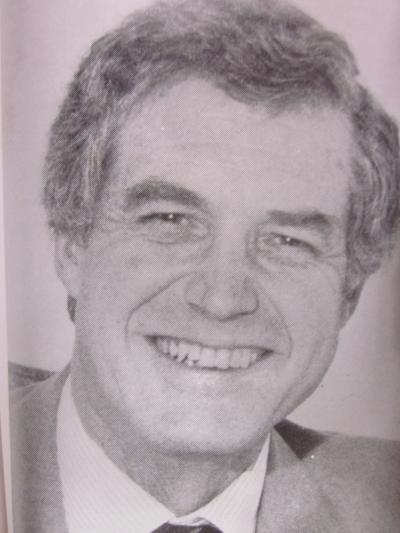At the cusp of the 1960s/70s Gordon Hogg as the head of Databank implemented the world’s first nationwide bank cheque clearing system. From the outset it worked to specification and became for a generation the country’s pre-eminent technological showcase.
It was owned and run by the clearing banks of the era and for almost its entire existence was under the unchallenged direction of Mr Hogg.
He was New Zealand’s first technocrat. A big-picture man he had taken a number of bold decisions and foremost among them was to engage IBM as supplier instead of Burroughs (now Unisys) which was then the recognised banking supplier.
From his eerie atop Databank House in Boulcott Street, he also established Wellington’s first US-style corporate office.
Eschewing the conventional desk centrepiece Mr Hogg arranged himself around a lavish hotel suite layout, thus eliminating the desk barrier which office psychologists were starting to identify as an obstacle to the free exchange of ideas.
Outside were arrayed his lieutenants, all specialists in their fields.
Possessed of matinee idol good looks, imposing height, and a suave yet friendly manner Mr Hogg’s personality permeated this, for New Zealand, very large organisation.
He ran it as a benevolent fiefdom.
On one occasion his own house was under re-decoration and one of the tradespeople without knowing who Hogg was confessed that what he really wanted to do was work in the computer sector.
Admiring the young man’s craftsmanship, Hogg put him into a career at Databank.
The question raised to this day by Databank is this. How did such a gigantic and pioneering computerised set-up perform as it should have done from the get-go?
Other subsequent and far less innovative institutional large scale networked systems in contrast continue to stutter and stall at implementation with each party blaming the other for non-performance.
In the cool mists of time we can now define some indicators.
The central one is Gordon Hogg’s surprise selection of IBM as the supplier.
At this time IBM globally had in the slogan of the era “bet the company” on the success of its 360 mainframe series, quite different from anything that had gone before.
Gordon Hogg always knew that IBM therefore had to guarantee the success of what would become a central global reference site for this very series.
In other words, IBM would have to keep its feet to the fire and always be ready in terms of deploying its high-level technical expertise onto the project as and when it was required.
There would be no distractions. No dilution of available expertise then or in the future.
“Big systems, doing big things,” was a Gordon Hogg motto and as it turned out, a highly workable one.
| from the This email address is being protected from spambots. You need JavaScript enabled to view it. || saturday 17 February 2018 |||





